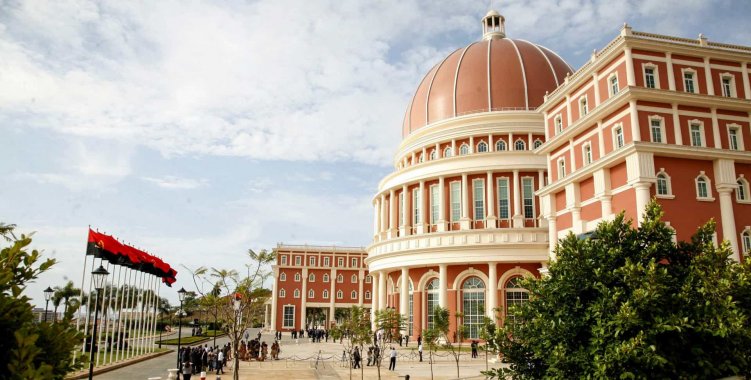The agenda of the first extraordinary plenary meeting of the fourth legislative session of the IV legislature, approved this Thursday in a leaders' conference, also includes the review of the Code of Criminal Procedure, a request made in August by the President, João Lourenço.
According to the leaders of the parliamentary groups, the request for suspension of mandate and withdrawal of immunities was made by the Supreme Court.
The MPLA deputy, who was Minister of Social Communication and director of the former Office of Revitalization of Institutional Communication and Marketing Administration (GRECIMA), is being accused of crimes of embezzlement, violation of plan and budget execution rules, improper receipt of benefits and money laundering, in the latter function, which he performed between 2016 and 2017.
In statements to the press, the leader of the MPLA parliamentary group, Américo Kuononoka, said that the process has passed to trial and the deputy has immunities, a condition that does not allow him to be tried or arrested, which is why the lifting of his immunities was requested.
Américo Kuononoka stressed that Manuel Rabelais still enjoys the presumption of innocence until proven guilty.
The vice-president of UNITA, Maurílio Luyele, pointed out that this is a legally correct process, taking into account that the case is in trial.
Cesinanda Xavier, vice president of Convergência Ampla de Salvação de Angola - Coigação Eleitoral (CASA-CE), defended that "all those indicted for crimes susceptible to loss of mandate and removal of immunities, should deserve the treatment that conforms to the law in force in the Republic of Angola".
The president of the Social Renewal Party (PRS), Benedito Daniel, noted that the plenary may eventually decide whether or not to withdraw the immunities of the deputy, while the leader of the National Front for the Liberation of Angola (FNLA), Lucas Ngonda, stressed that "the deputy is a normal citizen" and the National Assembly must have a report on the basis of the request for withdrawal of immunity.
On Friday, the members of the Constitutional and Legal Affairs and Mandates, Ethics and Parliamentary Decorate Committees of the National Assembly will meet to consider the issue, which will be deliberated in plenary.
The Statute of Deputies establishes that the loss of immunity is made through a request from the courts to the National Assembly, which decides in plenary session, through a resolution, the withdrawal or not, while the Constitution of the Republic defines in its article 150 that deputies may not be detained or imprisoned without authorization from the National Assembly or the Standing Committee, which replaces the plenary in the parliamentary pause, except in flagrante delicto, for a felonious crime punishable by imprisonment for more than two years.
Other deputies also have criminal cases or inquiries underway in the Attorney General's Office, namely the deputies Higino Carneiro, as governor of Luanda province, Vitória de Barros Neto, as minister of Fisheries, and Virgílio Tyova, as governor of Cunene province.
Next Tuesday, the deputies will also consider João Lourenço's request to review the Code of Criminal Procedure, particularly with regard to issues related to "the values of probity in the exercise of public functions and national commitment to preventing and combating corruption.
The head of state considered, in his letter of request for review, that the perspective presented by the new Code of Criminal Procedure "may not be in line with the current vision and convey an equivocal message regarding the crimes committed in the exercise of public functions".
At issue are "articles 357 and following, in particular the crimes of economic participation in business, influence peddling and corruption in the political sector", which although they obey the general guidelines of criminal policy reform, "paradoxically tend to establish less severe penalties than those provided for in the Criminal Code still in force".
João Lourenço also expressed concern for the environment, arguing for a "sufficiently inhibiting" approach to the corresponding crimes in this area.







